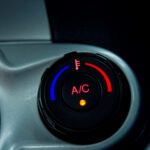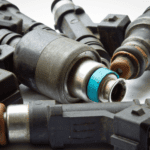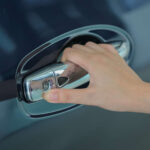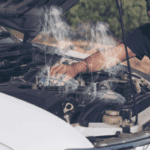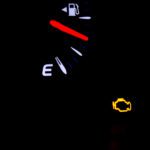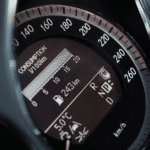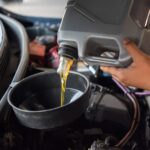Think of the fuel pump as the heart of your car’s engine. It’s responsible for pumping fuel from the gas tank to the carburetor or fuel injector and ensuring that your vehicle has the energy it needs to run.
But if the fuel pump has problems, it can be a major issue.
If you have a bad fuel pump, likely, your car won’t start because the fuel pump plays a vital role in the starting process. Whether your car has a diesel or gasoline engine, it needs fuel to run correctly.
In this article, we’ll explore the importance of the fuel pump and some of the symptoms of a bad fuel pump, so you can keep your car running smoothly.
What Does a Car’s Fuel Pump Do?
Fundamentally, a car’s fuel pump serves only one purpose, which is to supply fuel. The fuel pump’s other functions are secondary.
Gas is filled up at the gas station, but it won’t do any good there unless it gets to your car’s tank, where it’s needed. This is where the fuel pump comes into play. It sucks the gas out of the tank and runs through a fuel filter to the fuel rail and into injectors which deliver the fuel for combustion into the engine cylinder.
What Are the Types of Fuel Pumps in Cars?
We can group fuel pumps into three basic types: mechanical, electrical, and high-pressure fuel pumps.
- Mechanical Fuel Pump
Mechanical fuel pumps are low-pressure, though they are used in some high-pressure vehicles. In most cases, mechanical fuel pumps are outside the gas tank and are common in spark-ignition engines. There are two types of mechanical fuel pumps: diaphragm fuel pumps and plunger fuel pumps.
- Electric Fuel Pump
Electric fuel pumps operate on electricity. Therefore, a battery-related problem can damage your electric pump.
However, most modern cars with fuel injectors also have an electric fuel pump. When compared to the others, these pumps tend to be more reliable.
- High-Pressure Fuel Pump
Generally speaking, these fuel pumps directly inject fuel into the combustion chamber. According to their name, these pumps deal with very high pressure. Therefore, they are complex and less reliable than the others.
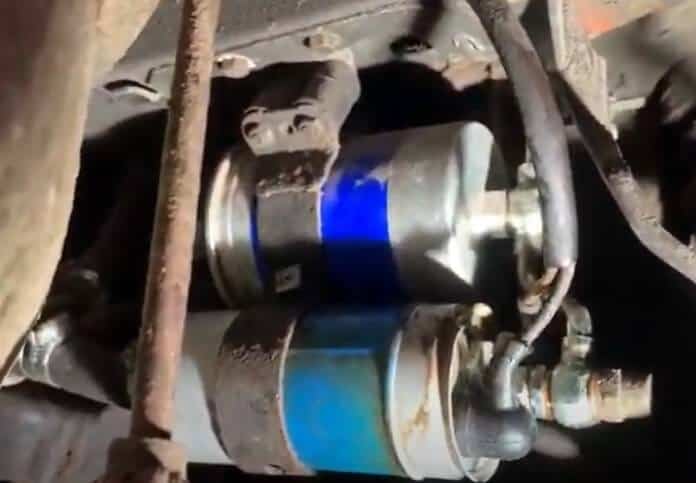
How Do I Know if My Fuel Pump Is Failing?
Luckily, fuel pumps usually give you signs before going entirely bad. If you are observant enough, some hints can help you mark the symptoms and fix them in time. These are some of the pointers you must be on the lookout for.
- Audible Whining Sound Originating From the Gas Tank
This is especially true of the gas tank’s electric fuel pumps. When it operates, a fuel pump in good health emits a low humming sound. However, its sound will most likely change when the pump begins to malfunction. The humming sound is gone and replaced by this distinctive whining sound.
You might need to start the car engine, leave it running, and stand near the gas tank to hear it.
- Having a Hard Time Starting the Engine
As discussed earlier, the car depends on the fuel pump’s supply. Therefore, when your fuel pump does not efficiently supply fuel to the engine, it may take several attempts to start the car. This problem may continue until the engine finally gets the fuel pump to supply enough fuel. Be careful here to ensure you do not have an alarm or immobilizer fault, which will have the same effect. Immobilizers can restrict a car from starting through the fuel, so the car will continue to sound like it is going to start but won’t.
- Engine Stalling
A bad fuel pump is one of the many reasons why your car stalls unnaturally. When you have a worn fuel pump, it may work with difficulty, which may result in overheating. The final result of an overheating engine is stalling.
- Sputtering and Jerking
A car engine with a bad fuel pump may begin to sputter at high speeds. That is because it needs an adequate gas supply to keep going even after the engine starts. Sputtering occurs when the fuel pump is not providing fuel at the correct required rate. Furthermore, breaks in the gas supply to the engine may cause the car to jerk intermittently.
- Power Surge
If the fuel pump isn’t working right, it may send too much gas to the engine, which is a problem. In an instance like this, you will notice the smell of gas, alongside the car’s speed or RPM suddenly spike and immediately plunge.
- Loss of Fuel Efficiency
If your pump isn’t working right, your car may burn gas faster and use more fuel than it should. This situation is problematic because the gas consumption is not proportionate to the mileage. It can be tricky to identify the fuel pump as the cause because many factors contribute to MPG.
How to Start Your Car When It Has a Bad Fuel Pump
Firstly, you must know that once you notice your fuel pump is going bad, fixing or replacing it is the best thing to do. However, there might be situations where it is an emergency, and you need to get your car started, even just to move it 100 yards up the road.
To be honest, there is only one method that really works, and that is to add pressure to the gas tank.
To facilitate gas flow to the engine, fuel pumps in good condition create pressure in the gas tank. Therefore, when the fuel pump goes wrong, it cannot do this anymore. Connecting an air pump to your gas tank will help solve this issue.
The air pump builds up pressure in the tank, aids gas flow, and enables you to start your car. Once started, its fingers crossed that there is enough pressure to keep the vehicle running for a few minutes for you to move the car. However, with no further pressure and an inoperable fuel pump, the vehicle will stall eventually.
Conclusion
The fuel pump is an essential component of your car. Without a functioning fuel pump, your vehicle can not perform. Although there are many acclaimed ways of starting a car with a bad fuel pump, only one works consistently. However, in some situations, other methods may also be helpful. So, nothing should prevent you from giving them a shot as well.
Remember, it’s not possible to keep the car running for more than a few minutes, so if you get the vehicle started, move it as quickly as possible, and don’t try to be too ambitious on the distance.
